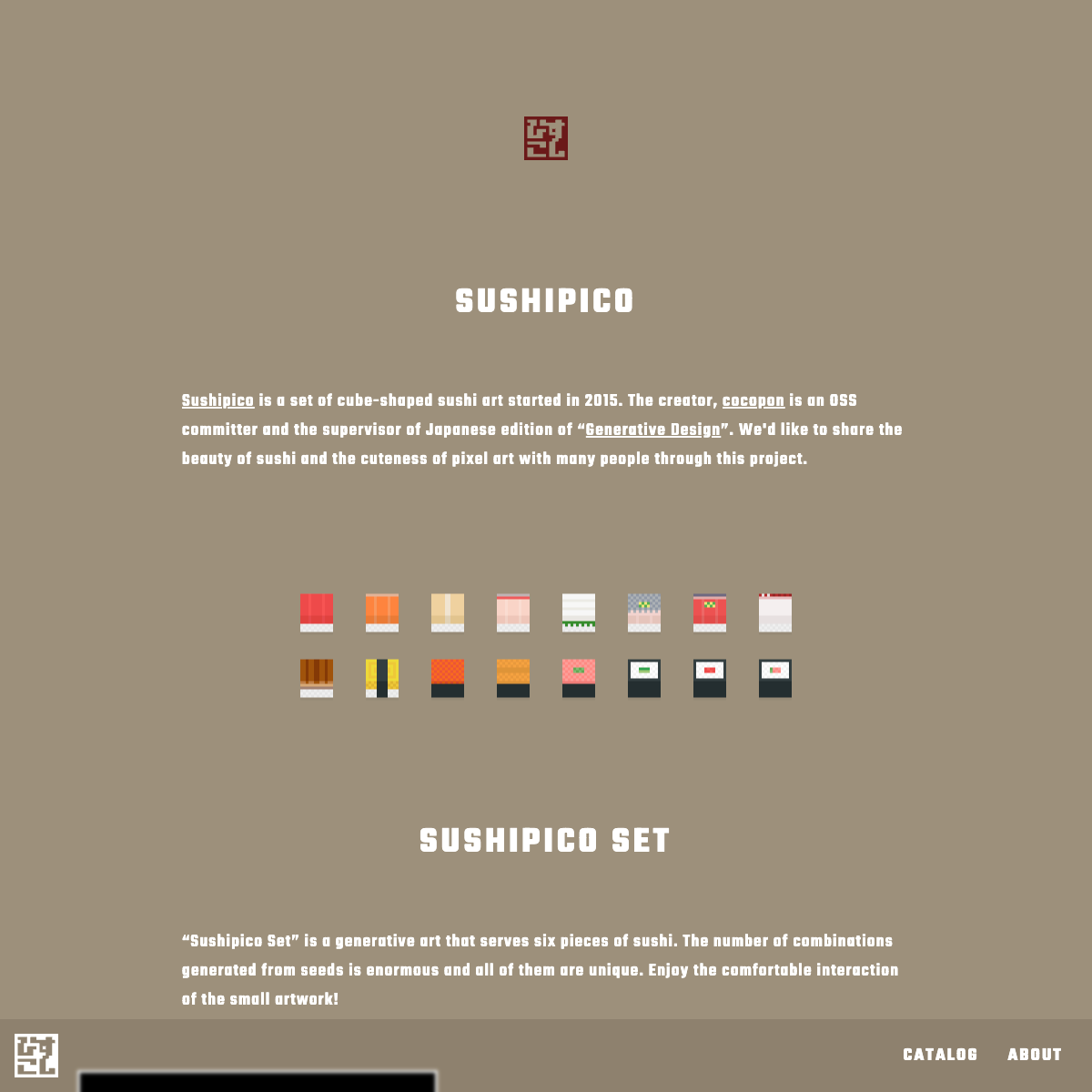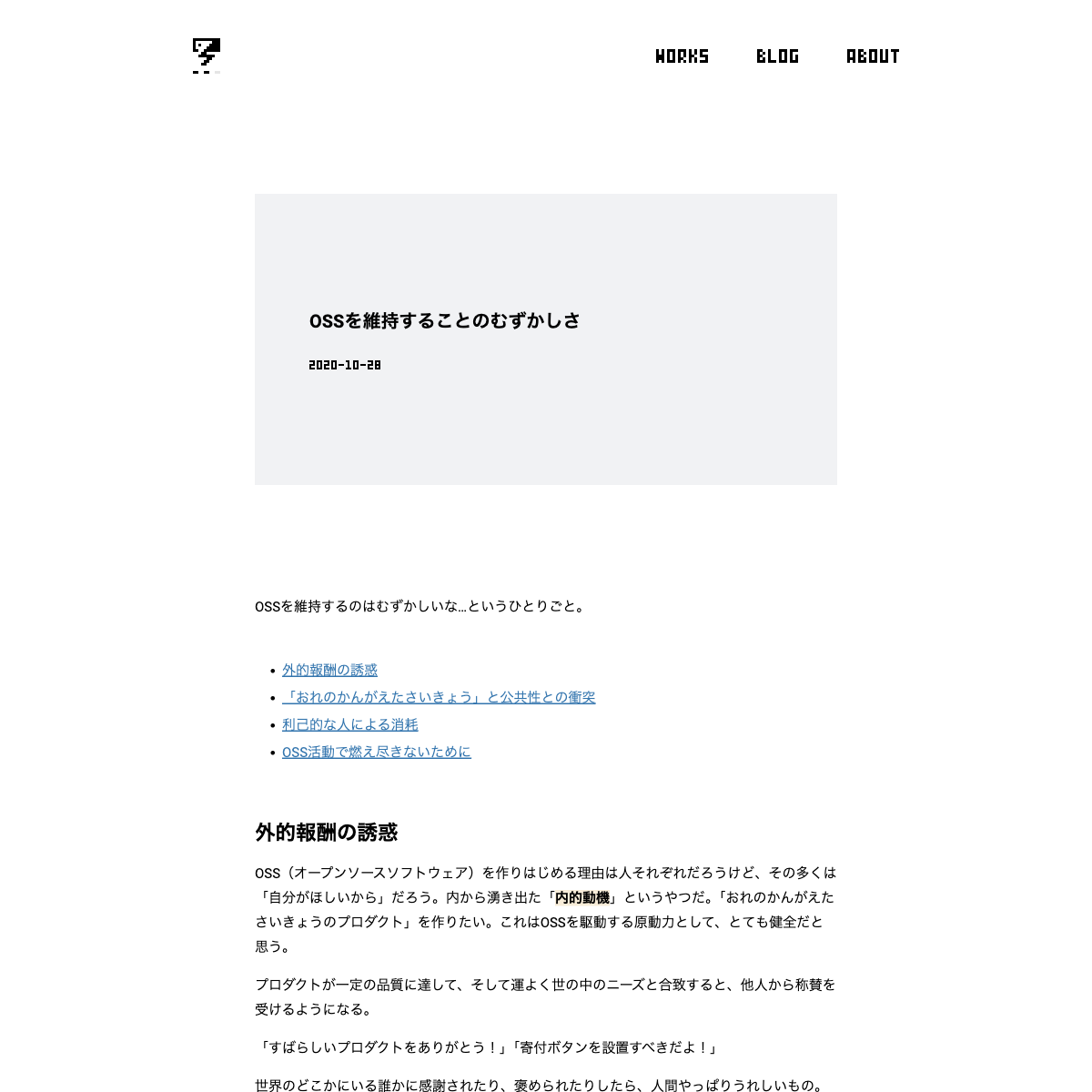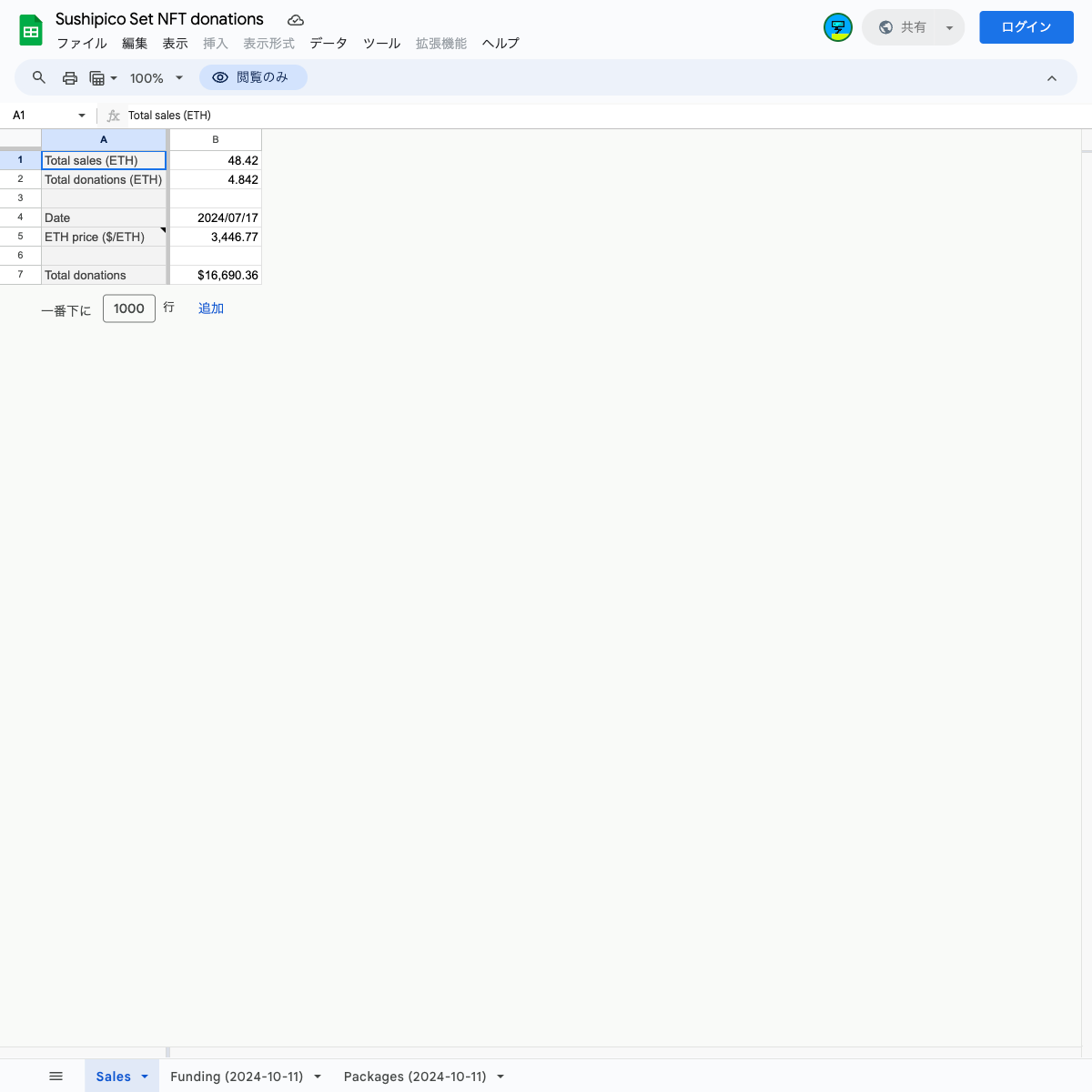Report on the Donations to OSS Projects from Sushipico Set
In relation to the 2022 project Sushipico Set, we have contributed a total of $15,943.54 to 88 different OSS projects. This report provides the details of that contribution.
Sushipico Set
Sushipico, created in 2015, is a cube-shaped sushi designed in pixel art. I have primarily presented it at events, offering merchandise and interactive experiences.
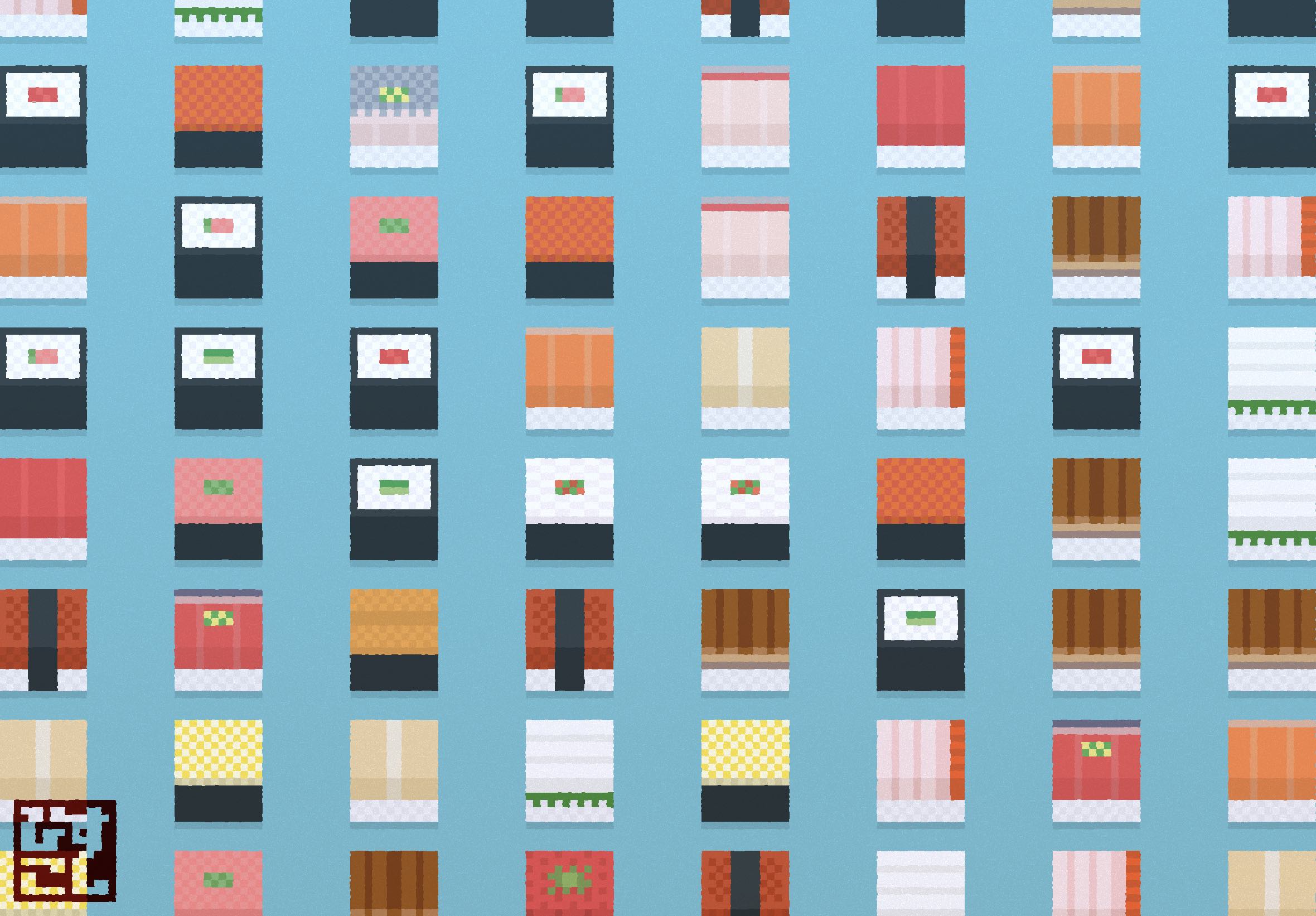
The Sushipico Set, launched in 2022, is one of our projects and is an art piece utilizing the Non-Fungible Token (NFT) technology, which was gaining attention at the time.
This project had two main goals.
Goal 1: Sharing the Charm of Sushi and Pixel Art with the World
The first goal was to showcase the appeal of sushi and the cuteness of pixel art to people around the world.
The Sushipico Set consists of six sushi pieces, allowing for various combinations. It’s an interactive art piece that responds differently depending on the type of sushi you touch.
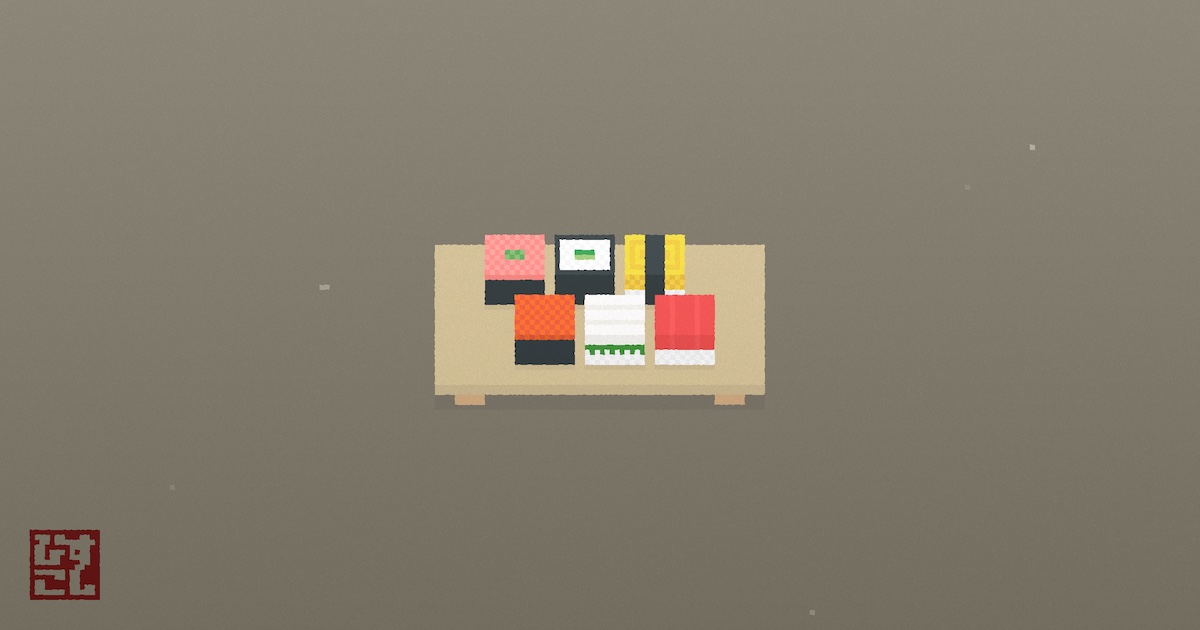
Until then, Sushipico was something you could only experience at event venues, similar to a festival booth. By combining the new NFT technology, we believe it has created an experience similar to enjoying a small toy in your hands.
Goal 2: Giving Back to OSS
Today, most of programming relies on libraries created by others. The same goes for Sushipico Set — it’s thanks to the foundations built by those before us that we can focus on the creation of the artwork itself.
Many of these libraries fall under the category of Open Source Software (OSS). As the name suggests, OSS projects make their source code openly available, allowing people with shared interests to come together and contribute to the development. Many OSS projects are maintained by volunteers, and we are grateful to benefit from their work free of charge.
While this may sound like an ideal system, it has inherent structural problems. One famous illustration perfectly captures the issues modern OSS faces:
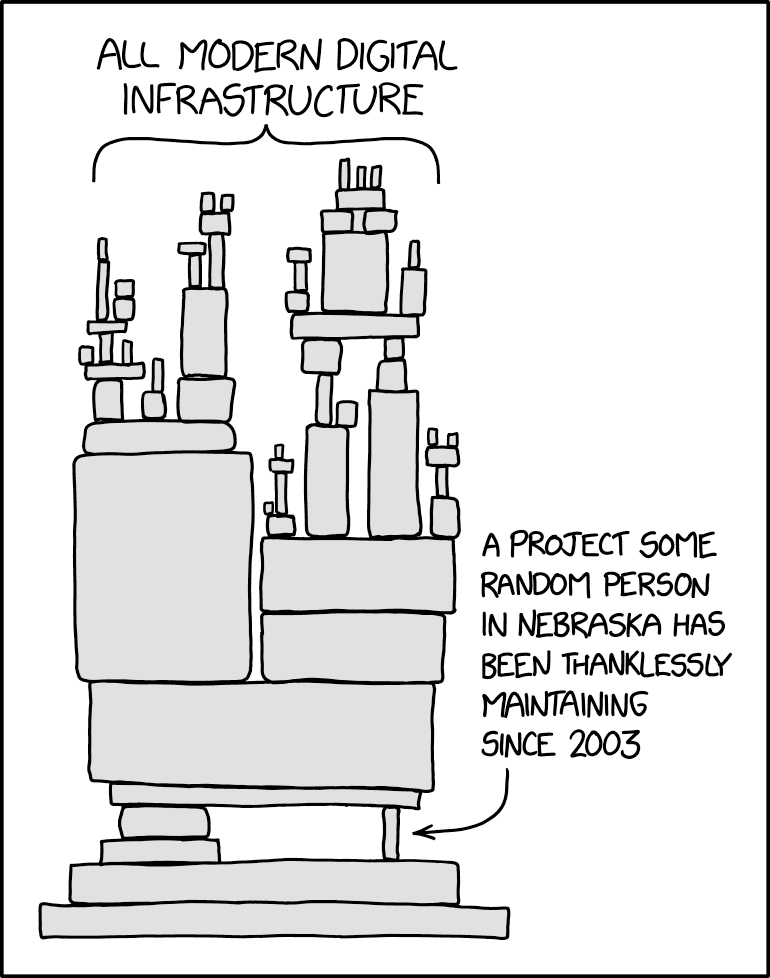
The illustration shows the unstable structure where modern digital infrastructure is built on a project maintained by an unknown developer, unappreciated since 2003.
A library that began as a personal hobby can take a different turn when it gets referenced by large projects. The pressure to fix bugs and address security vulnerabilities grows, and developers sometimes face harsh criticism. This overwhelming responsibility, with little to no compensation, has led to many unfortunate cases where developers are crushed under the weight of it all.1
Though on a smaller scale, I’ve had similar experiences myself. What started as something I enjoyed eventually turned into a responsibility, consumed by others with little appreciation. I often find myself struggling with this reality.
For this project, we aimed to broadly give back to the OSS community by donating a portion of the sales. OSS activities are like a marathon — temporary support won’t solve the underlying issues, but it’s certainly better than doing nothing.
About the Donations
When we launched Sushipico Set, we made it clear that a portion of the project’s sales would be given back to OSS projects (see FAQ for details).
From here, I’ll explain the criteria we used to select the donation recipients and how much we were able to give back.
Selection Criteria
Sushipico Set is built using web development technologies, and the package dependencies are managed by the package manager npm. By looking at the dependencies listed in the package.json file, you can see which packages the project relies on.
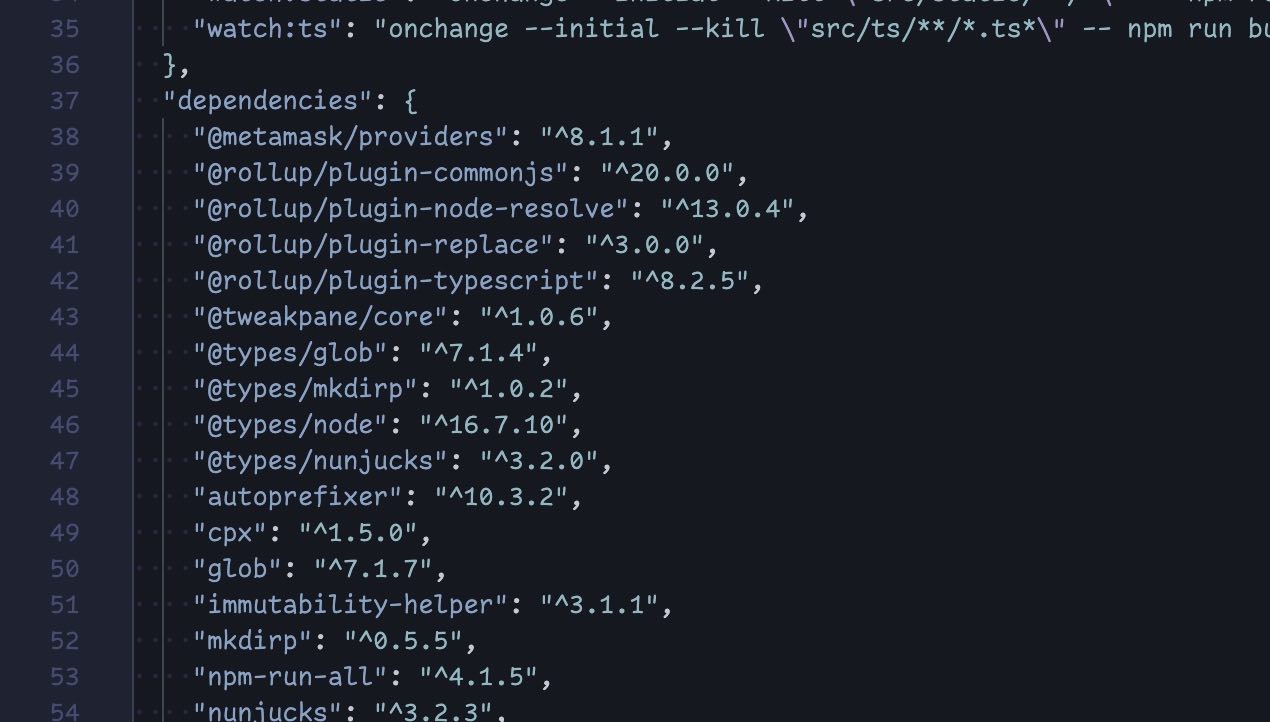
Those packages also have their own package.json files, so by tracing them, we can extract the full chain of dependencies — showing all the packages that Sushipico Set relies on.
By the way, when it comes to OSS donations, there’s a tendency for contributions to be concentrated on well-known projects. While awareness and systems for donations have improved over time, there is still a problem with support not reaching the smaller, less visible projects at the edges.
To address this, we decided to dig one level deeper into the dependencies and extend our support to the packages that the well-known ones rely on.2
I also considered Processing, which has greatly contributed to my creative coding journey, to have indirectly supported this project. Although it was an exception, we included it as a donation recipient.
Executing the Donations
The process of making the donations was filled with challenges.
Cryptocurrency prices remain volatile, and if I missed the right timing to trade it for fiat currency, the donation amounts could have been significantly reduced. On top of this, I faced various other obstacles such as organizational changes, setting up new accounts, and handling unfamiliar cryptocurrency transfers. As a result, two years passed since the project’s launch.
Details of the donations are summarized in this spreadsheet, so feel free to check it out if you’re interested:
We initially planned to donate to 92 projects with a total of $16,690.36. However, we couldn’t find donation portals for two projects, one had a minimum donation amount that we couldn’t meet, and due to an oversight, one project was selected twice. In the end, we successfully donated $15,943.54 to 88 projects.
Most of the donations were made through GitHub Sponsors and Open Collective. Ideally, donating in Ethereum would have been best for transparency, but since most platforms didn’t support it, we had no choice but to use other methods.
Conclusion
Two years have passed since the release of Sushipico Set, and the environment surrounding NFTs has changed significantly. While NFTs haven’t yet become mainstream, and there’s still some skepticism around them.
Even so, I’m glad we were able to make a small contribution to the OSS community through this project.
I hope that all creative work can continue in a sustainable way.
Note: Changes to Data Storage Methods
With several years having passed since the release of Sushipico Set, we took this opportunity to review and update our data storage methods.
NFTs typically use a decentralized data storage system called IPFS, which we initially adopted for this project. Once uploaded, the data remains permanently accessible as long as someone continues to maintain it, making IPFS a good match for the decentralized nature of cryptocurrencies and NFTs.
However, there were issues such as the considerable cost of keeping the data and the slow loading times for less frequently accessed content, which negatively impacted the user experience. To address these concerns, we decided to move the Sushipico Set data back under our own domain.
While the data’s lifespan now depends on the artist, we concluded that maintaining the domain sushipi.co is a more reliable option than trying to sustain the IPFS data. Improving loading times is also a significant reason for choosing the latter option, as it enhances the experience of the interactive artwork.
https://dev.to/sapegin/why-i-quit-open-source-1n2e, https://github.com/bzg/opensource-challenges?tab=readme-ov-file ↩︎
Ideally, we should dig deeper into the dependencies and give back to the smaller projects as well. However, considering the trade-offs of exhausting our time and mental energy on the procedures for nearly 100 donation recipients and the fact that increasing the number of recipients would reduce the amount given to each, we chose our current approach. I have always hoped that platforms like GitHub would take the initiative to create a support system that considers dependencies. ↩︎
